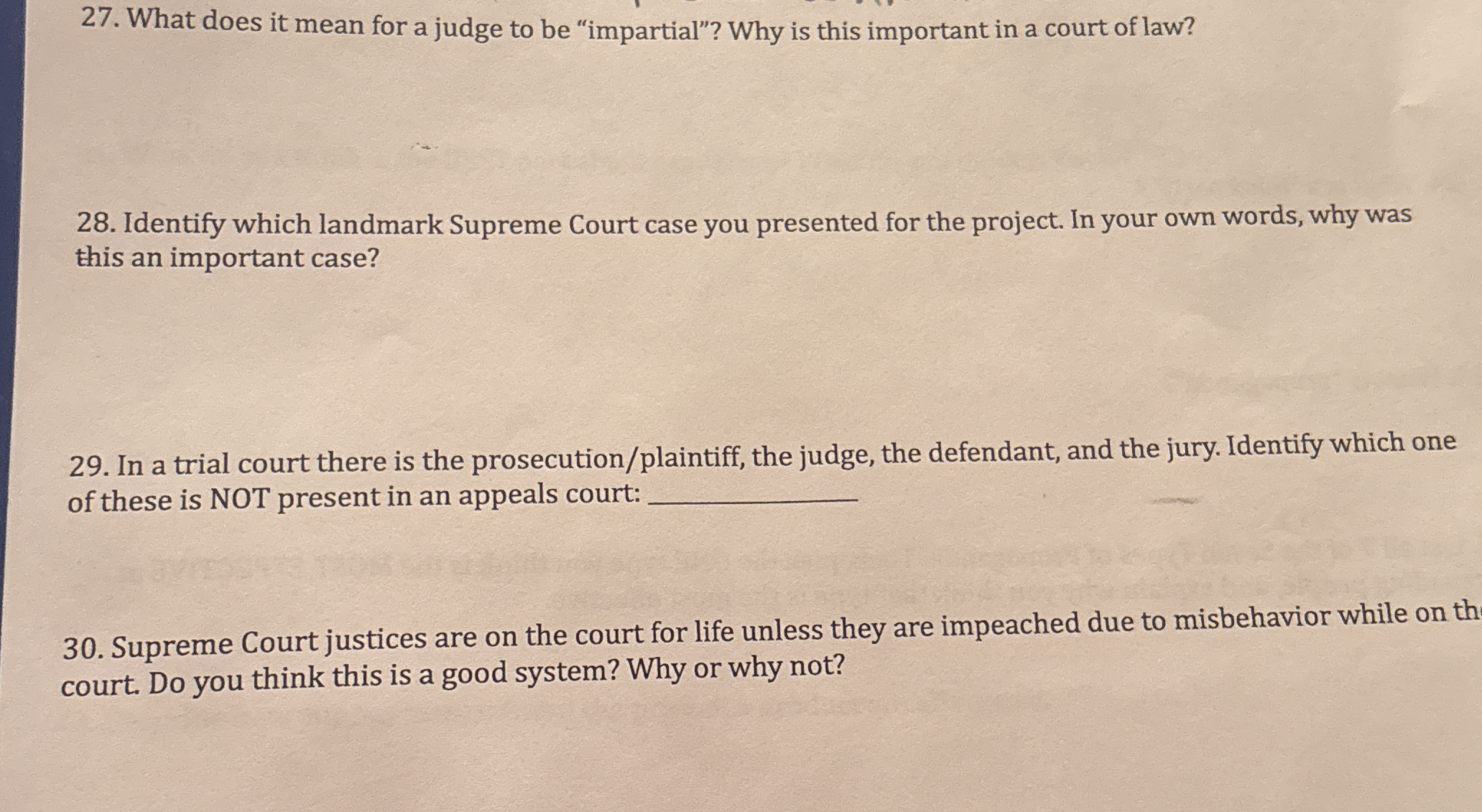What does it mean for a judge to be 'impartial'? Why is this important in a court of law? Identify which landmark Supreme Court case you presented for the project. In your own word... What does it mean for a judge to be 'impartial'? Why is this important in a court of law? Identify which landmark Supreme Court case you presented for the project. In your own words, why was this an important case? In a trial court there is the prosecution/plaintiff, the judge, the defendant, and the jury. Identify which one of these is NOT present in an appeals court. Supreme Court justices are on the court for life unless they are impeached due to misbehavior while on the court. Do you think this is a good system? Why or why not?

Understand the Problem
The question is asking for an explanation of judicial impartiality and its significance in the legal system, identifying a landmark Supreme Court case, understanding the composition of trial versus appeals courts, and providing an opinion on the lifetime appointment of Supreme Court justices.
Answer
Judges must be unbiased, ensuring fairness. Important Supreme Court cases often focus on rights and freedoms. Juries are not in appeal courts. Lifetime appointments ensure independence, but can be controversial.
The final answer is formulated based on the questions provided.
Answer for screen readers
The final answer is formulated based on the questions provided.
More Information
Judicial impartiality ensures decisions are made based on law without bias. Landmark cases shape legal precedents. Appeals focus on legal errors, not new evidence. Lifetime tenure shields justices from political pressure but raises concerns about unchecked power.
Tips
It's important to distinguish roles in trial and appeal courts to avoid confusion.
Sources
- What is Judicial Impartiality? - uscourts.gov
- Supreme Court Landmarks - uscourts.gov
- What Does Fair and Impartial Judiciary Mean - judicialstudies.duke.edu
AI-generated content may contain errors. Please verify critical information